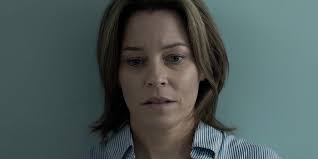A Mistake 2024 Movie Review
Expert surgeon Elizabeth Taylor makes a fateful decision during a routine surgery by allowing her young colleague to take charge of a delicate procedure. When a mistake occurs that can’t be undone, Elizabeth finds herself in a difficult situation, facing the desperate need for answers from the patient’s parents and the hospital’s relentless efforts to protect its reputation. As she tries to shield her colleague and herself from the consequences, the film delves into the ripple effects of a single human error.
When it comes to the Hippocratic oath and patient health, surgeons must act in the best interests of those they operate on and serve. But what happens when an unforeseen human error leads to dire consequences, which in turn results in blurred ethics and reputation protection? Christine Jeffs answers this question in her adapted screenplay of Carl Shuker’s 2019 bestselling novel “A Mistake.” Jeffs returned after a 16-year hiatus in directing to premiere her intelligent character study where the result of fault and accountability upends a surgeon’s career. Led by a superb and expressive performance from Elizabeth Banks, this medical drama is thought-provoking at its best and emotionally draining at its worst.
Distinguished surgeon Elizabeth “Liz” Taylor (Banks) has had a long, successful career of operations to improve patient health at her esteemed New Zealand hospital. While she is reluctant to partake in the emotional conversations that come with saving lives, Liz routinely leads her team to success. Her latest case involves 29-year-old Lisa (Acacia O’Connor), a patient suffering from excruciating abdominal pain. After determining that Lisa suffers from a severe infection, Liz and her team decide to take her to emergency surgery. While leading the operating table, Liz seizes the opportunity to let her young registrar, Richard (Richard Crouchley), take charge of the procedure to gain more experience. However, his nerves get the best of him, which leads to a dire mistake. The team ultimately rallies to perform the urgent care that Lisa needs, but after transferring her to the ICU, Lisa unexpectedly dies of advanced sepsis.
From here, “A Mistake” becomes a story of consequence, accountability, and ethics where director Jeffs doesn’t hold back on exploring these themes under a microscope. With it comes a sensational character study of a woman whose confidence and life are turned upside down because of the decision that led to dire consequences. Jeffs’s storytelling is particularly humane for a film that frequently visits the notion of blame. After all, Lisa’s parents (Rena Owen and Matthew Sunderland) request details and then publicly point their fingers at Liz when they aren’t satisfied with the answers. This compelling narrative established by the thought-provoking script intensifies over time while welcoming any scrutiny that will naturally arise for viewers. The result is often an anxiety-inducing showcase of error that demands equal amounts of empathy and criticism.
As the film progresses, the story takes darker turns to mimic the human psyche under pressure, especially when he comes to Elizabeth. Her relationship with her colleagues, friends, and partner begins to suffer while she undergoes an emotional transformation, which is also new territory for her. The fallout, tragedies, and gut-wrenching outcomes may feel like theypile on too much. However, the script never feels contrived or overly dramatized. Instead, Jeffs carefully resembles the nuances of life in her storytelling and with her characters. Frank Ilfman’s score matches the intensity of the script, starting off with subtlety in the bloody opening operation and continuing with a crescendo of bleakness as the consequences of the mistake unravel.
With the plethora of themes that come with this adaptation, one might be compelled to brush “Mistake” off as an overly ambitious criticism of healthcare ethics and policies. This especially might come up when the side story of publishing surgical data to the public is introduced in the latter half of the film. However, the inclusion of these side stories, in addition to all that Elizabeth is experiencing, is precisely what makes the story so compelling. It calls into question human fallibility, mental health fragility, and the consequences of costly mistakes. It feels like life—with all its intricacies, complications, mishaps, tragedies, and even victories.
Indeed, most of Jeffs’ film adaptation works, but perhaps its large success should be attributed to Elizabeth Banks’ performance. Here, she delivers one of the best performances of her career. The evolution of her character’s stoic personality to a more affecting one due to her mistake leading to a quest for forgiveness is surely a transformation to remember. Banks manages to exude every emotion through vocal intonations, body language, and facial expressions in a way bound to leave a lasting impression.
With powerhouse storytelling that results in a more than satisfying ending, “A Mistake” is emotionally gripping in all the ways a medical drama should be. The compelling nature of the narrative and character study simply cannot be denied. The film is led by an exceptional performance from Elizabeth Banks, whose recent acting turns from comedy to drama prove to be no error at all. Banks is exactly where she belongs, and she’s producing high-quality, career-defining work as a result. Christine Jeffs’ film adaptation surely boasts a number of tragic occurrences in this multilayered script that may leave viewers in a sour mood. But thanks to her detailed examination of ethics, accountability, and human error, this story is a welcomed emotional reflection of life.




